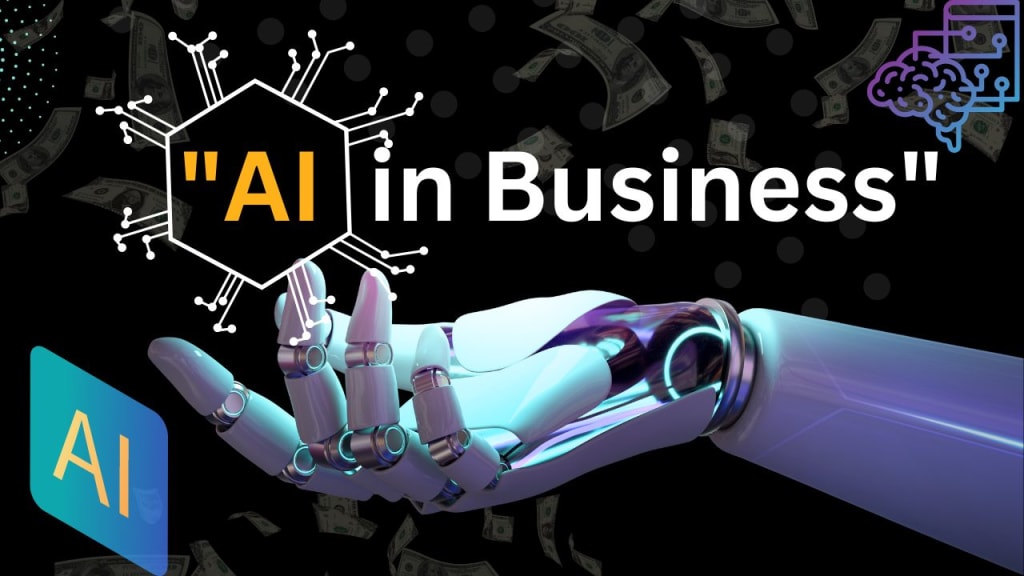
AI (Artificial Intelligence) has become an integral part of many businesses across various industries. Its capabilities to analyze data, automate processes, and make intelligent predictions have opened up new opportunities and improved efficiency in numerous business operations. Here are some common use cases of AI in business:
1. Data Analysis and Insights: AI can process vast amounts of data and extract valuable insights. Businesses can use AI-powered analytics tools to identify patterns, trends, and correlations, which can aid in making informed decisions and developing effective strategies.
2. Customer Service and Support: AI chatbots and virtual assistants are widely used in customer service. They can handle basic customer queries, provide information, and even perform tasks such as scheduling appointments or placing orders. AI-powered chatbots can offer 24/7 support, reducing response times and improving customer satisfaction.
3. Personalized Marketing and Recommendations: AI algorithms analyze customer data to deliver personalized marketing campaigns and recommendations. By understanding customer preferences and behavior, businesses can target specific audiences with tailored offers, increasing engagement and conversion rates.
4. Process Automation: AI enables businesses to automate repetitive tasks and streamline workflows. Robotic Process Automation (RPA) can handle tasks such as data entry, invoice processing, and inventory management, freeing up employees to focus on more strategic and creative activities.
5. Predictive Analytics and Forecasting: AI algorithms can analyze historical data and patterns to make accurate predictions and forecasts. Businesses can leverage this capability to optimize inventory management, demand forecasting, pricing strategies, and risk assessment.
6. Fraud Detection and Cybersecurity: AI can identify and mitigate potential threats by analyzing vast amounts of data for suspicious activities. Machine learning algorithms can detect anomalies and patterns associated with fraudulent behavior, helping businesses protect sensitive information and prevent financial losses.
7. Product Development and Innovation: AI can assist in product development by analyzing market trends, customer feedback, and competitor data. Businesses can use AI to generate product recommendations, improve designs, and automate testing processes, resulting in faster innovation cycles and improved product quality.
8. Supply Chain Optimization: AI can optimize supply chain operations by predicting demand, optimizing inventory levels, and improving logistics. By analyzing data from multiple sources, AI algorithms can identify bottlenecks, reduce costs, and enhance overall efficiency.
9. Natural Language Processing (NLP): AI-powered NLP technologies enable businesses to analyze and understand human language. This can be applied to sentiment analysis, social media monitoring, content generation, and language translation, facilitating better communication and decision-making.
10. Virtual Assistants and Voice Recognition: Virtual assistants like Siri, Alexa, and Google Assistant use AI algorithms for voice recognition and natural language understanding. They can perform tasks such as setting reminders, playing music, answering questions, and controlling smart home devices, offering convenience and enhancing productivity.
It's worth noting that while AI brings many benefits, it also raises ethical considerations and challenges that businesses must address, such as privacy concerns, bias in algorithms, and the impact on employment. Nonetheless, when implemented thoughtfully, AI can significantly enhance business operations and competitiveness in today's data-driven world.
How businesses can leverage AI:
11. Quality Control and Predictive Maintenance: AI can analyze sensor data from manufacturing processes to detect anomalies and identify potential quality issues. It can also predict when machinery or equipment is likely to fail, enabling proactive maintenance and minimizing downtime.
12. Financial Analysis and Trading: AI algorithms can analyze financial data and market trends to assist in investment decisions. High-frequency trading systems use AI to make rapid trading decisions based on real-time market data, optimizing portfolio performance.
13. Healthcare and Medical Diagnosis: AI can assist in medical diagnosis by analyzing patient data, symptoms, and medical images. It can provide insights and recommendations to healthcare professionals, improving accuracy and efficiency in diagnostics.
14. Human Resources and Talent Acquisition: AI can streamline the recruitment process by automatically screening resumes, conducting initial candidate interviews, and assessing applicant fit. It can save time and effort for HR professionals, allowing them to focus on more strategic aspects of talent acquisition.
15. Sentiment Analysis and Brand Monitoring: AI-powered sentiment analysis tools can analyze social media and online platforms to gauge public opinion about a brand, product, or service. This information can help businesses identify areas for improvement, respond to customer concerns, and manage their online reputation.
16. Energy Efficiency and Sustainability: AI can optimize energy consumption in buildings by analyzing sensor data and adjusting heating, cooling, and lighting systems accordingly. It can also help businesses identify opportunities for energy savings and reduce their environmental footprint.
17. Content Generation and Curation: AI algorithms can generate content such as news articles, product descriptions, and social media posts. They can also curate content by analyzing user preferences and recommending relevant articles, videos, or products.
18. Autonomous Vehicles and Transportation: AI plays a crucial role in the development of autonomous vehicles, enabling them to perceive the environment, make decisions, and navigate safely. AI can also optimize route planning, traffic management, and logistics in transportation systems.
19. Language Translation and Interpretation: AI-powered language translation tools can automatically translate text or speech between different languages. This capability is valuable for businesses operating in global markets, facilitating communication and breaking language barriers.
20. Augmented Reality (AR) and Virtual Reality (VR): AI can enhance AR and VR experiences by analyzing user interactions and preferences. It can personalize virtual environments, track user movements, and provide realistic simulations, benefiting industries such as gaming, real estate, and training.
These are just a few examples of how businesses can utilize AI to drive innovation, efficiency, and growth. The applications of AI are vast and continue to expand as technology advances, providing businesses with new opportunities to improve their operations and deliver value to customers.
About the Creator
Lopa_Musk
I'll give strong focus on providing valuable content about business tips and tricks in the area of passive income. Also committed to inspiring and empowering others to achieve their own financial goals.






Comments
There are no comments for this story
Be the first to respond and start the conversation.